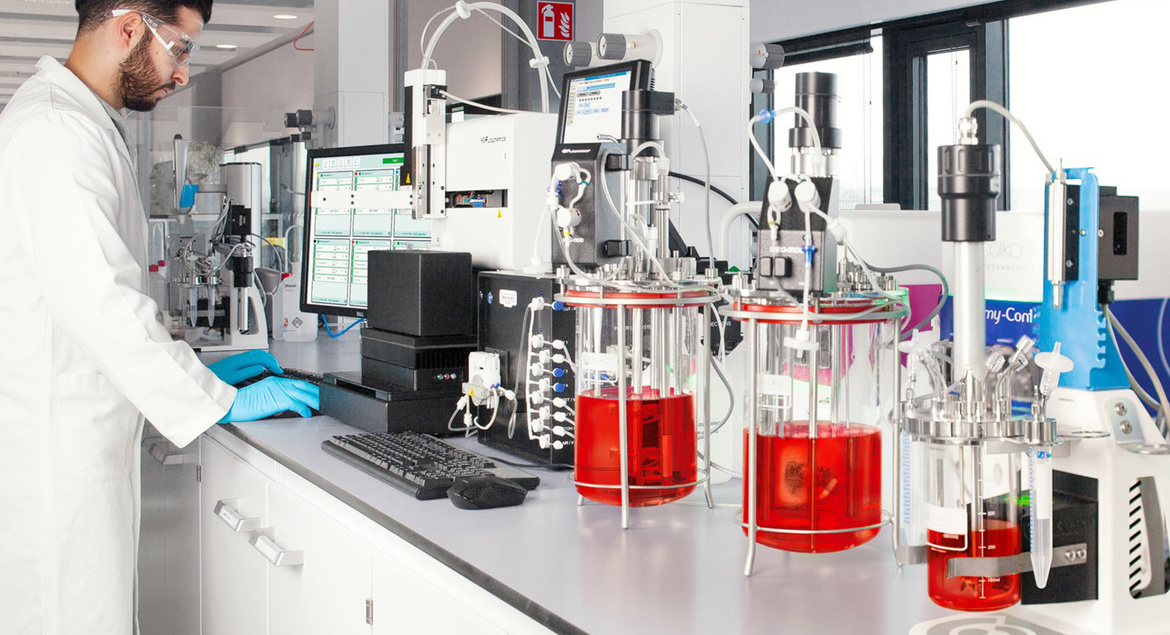Recently, Bluu Seafood in Germany presented their first market-ready products made from cultivated fish cells – a milestone in enabling people to eat seafood without compromising animal welfare or straining marine ecosystems. Instead, the cells used to make fish fingers and fish balls are growing in bioreactors supplied by Getinge.
“Feeding the world's growing population in the future comes with various challenges, and the fishing sector is one of them. About 90 per cent of the fish population is either overfished or at maximum capacity. We need to think about alternatives,” says Dr. Sebastian Rakers, Co-Founder and CEO of Bluu Seafood.
As a marine and cell biologist, Sebastian Rakers worked for more than a decade with fish cells before he realized the full potential of the technology.
“I am sure that coming generations will ask us why we were killing all these animals to get food when there is such an alternative that is equal to conventional fish. Since we only produce what is consumed in the end, it is an efficient alternative that is healthy and sustainable,” he says.
While human impact, micro plastics and pollution also affect the inhabitants of our oceans, the fish cells at Bluu Seafood are cultivated in a clean and controlled bioreactor environment.
“A cell line is formed from fish cells, and then we expand them into a biomass in a stirred tank bioreactor. In there, cells multiply in optimal conditions until they are harvested and frozen. We store them for the food technology team, who use them to make our products,” explains Dr. Duong Nguyen, Associate Director of Research and Process Innovation at Bluu Seafood.
The ability to control cultivation conditions and the possibility to scale up the process are two key enablers for progress.
“We want to learn as much as possible about the cells. How ‘happy’ are they? What is the metabolism like? How do they get along with the nutrients we give them? Everything should be optimal to ensure high cell viability and maximum growth rate,” says Dr. Karen Wohlers, Junior Scientist in Process Development.
She continues:
“The bioreactors enables us to control the entire environment and provide the perfect conditions for our fish cells.”
When it comes to scaling up the process, Bluu Seafood regards Getinge as a promising supplier.
“Growing our offer means that we have to produce tons of cells at a low cost, because people want to buy food that doesn’t cost too much. Finding efficient and cost-effective solutions for upscaling is a challenge, so we are excited about Getinge’s ability to offer flexible bioreactors that can be adapted to our needs,” Sebastian Rakers concludes.
